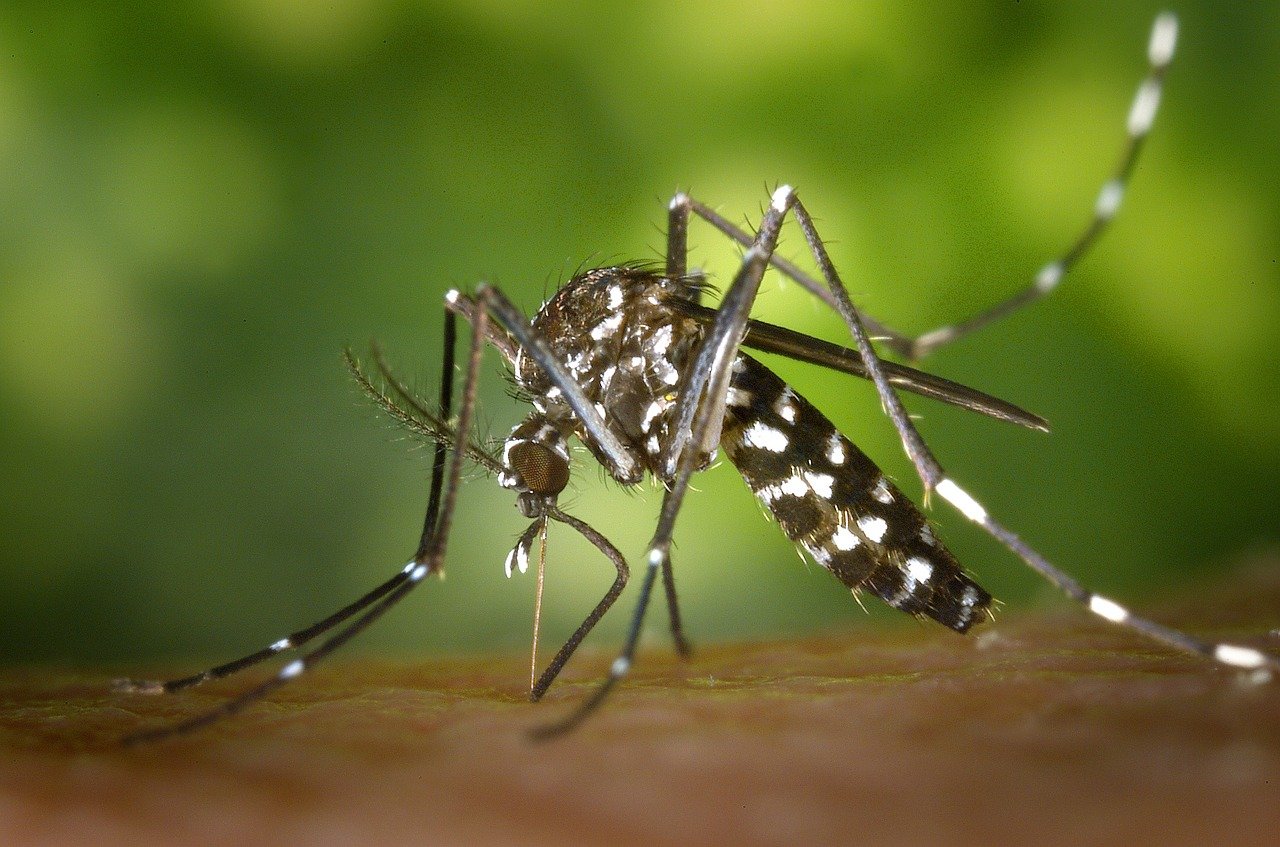
Everything’s bigger in Texas, and the mosquito population is no exception. Many parts of Texas have a temperate and humid climate that is ripe for mosquito habitats. The Lone Star State is home to more than 30 million people, so mosquitoes have many options to choose from when it comes to creating breeding grounds and habitats.
West Texas is dry and not as prone to mosquito infestations. Mosquitoes tend to be more popular in the eastern and middle parts of the state where many of the larger cities are located.
Mosquitoes are probably known as the one of the most annoying pests. They’re also very harmful, spreading diseases such as West Nile virus, malaria, dengue, yellow fever, and Zika virus. In fact, mosquitoes are known as the deadliest animal, killing a whopping 700,000 people across the world every year. In comparison, less than a dozen people are killed by sharks every year, on average.
It only takes one mosquito bite for someone to suffer a potentially fatal disease. What this means is that you need to be proactive in preventing mosquito infestations on your property. Count on Stride Pest Control to protect your family from mosquitoes and other harmful pests. Our Round Rock professionals can provide you with long-term relief from these blood-sucking creatures and help you reclaim your yard.
Ways to Control Mosquitoes
You can do your part to keep mosquitoes out of your yard. Here are some things you can do:
- Remove mosquito habitats. Mosquitoes need water for two stages of the life cycle. Therefore, you need to be thorough about eliminating standing water. Mosquitoes don’t need a lot of water; they can breed in as little as a tablespoon of water. This means you should be emptying every little bit of water from buckets, bird baths, flower pots, and other containers that can collect water. Keep gutters clear of debris and standing water. Remove standing water from flat roofs. Change water in pet dishes daily. Drain temporary pools of water or fill with dirt. If you have a swimming pool or hot tub, keep the water treated with chlorine and circulating.
- Use structural barriers. Since some mosquitoes bite while indoors, using structural barriers is a good way to reduce the incidence of bites. This may include installing window and door screens, covering all gaps in walls and windows, and completely covering baby carriers and beds with netting.
- Use mosquito traps and nets. Consider using mosquito traps or bug zappers in outdoor areas to reduce mosquito populations. Use mosquito nets over beds, cribs, and outdoor seating areas, especially in regions where mosquitoes are prevalent.
- Trim vegetation. Keep grass and shrubs trimmed to reduce resting areas for mosquitoes.
- Throw out trash. Avoid allowing trash to accumulate around the home. Pick up and haul away all trash piles, bottles, cans, and broken appliances. Do not leave decaying material in or around the home.
- Use mosquito control products. Use insecticides, larvicides, or mosquito dunks in areas where standing water cannot be eliminated, such as ponds or rain barrels. Always use these products responsibly.
- Get mosquito fish. If you have a large body of water on your property, consider getting mosquito fish. They are the perfect fish because they can live in just about any type of water and will eat available vegetation, so you don’t even have to feed them. The females have up to 100 babies at a time. These babies begin feeding on mosquito larvae the day they are born. Females can reproduce every six weeks.
How to Avoid Getting Bitten
Even if you can’t get rid of mosquitoes from your yard entirely, there are some things you can do to avoid getting bitten. They include the following:
- Use mosquito repellent. Apply mosquito repellent containing DEET, picaridin, or oil of lemon eucalyptus to exposed skin. Reapply often, especially if you’re sweating or swimming.
- Cover up. Wear long-sleeved shirts, long pants, socks, and closed-toe shoes when you’re outdoors, particularly during dawn and dusk when mosquitoes are most active.
- Install screens. Make sure windows and doors in your home have screens to keep mosquitoes out. Repair any holes or tears in existing screens.
- Use fans. Mosquitoes are not strong fliers, so having a fan running near you can help keep them away by disrupting their flight pattern.
- Avoid strong scents. Avoid using heavily scented soaps, lotions, and perfumes, as these can attract mosquitoes.
- Stay indoors during peak mosquito activity. If possible, stay indoors during dawn and dusk, when mosquitoes are most active.
- Wear light-colored clothing. Mosquitoes are attracted to dark colors, so wearing light-colored clothing can make you less appealing to them.
- Consider natural repellents. Natural repellents, such as citronella candles or essential oils like lavender or tea tree oil, may help repel mosquitoes.
Use of Larvicides
Larvicides are one of the most commonly used methods of mosquito control. They are considered to be very effective. They kill mosquitoes before they turn into adults. They work when mosquitoes are in their immature stages and cannot yet fly, bite, or transmit diseases. Some formulations are activated when ingested by the mosquitoes, while others work when they come into contact with the larvae.
It is best to apply larvicide only in areas where standing water cannot be eliminated and larvae are actually found. The safest larvicides are methoprene products and the bacteria Bti. When used according to product label instructions, larvicides are not harmful to people, pets, or the environment.
Contact Us Today
In Texas, mosquitoes may be out all year long, but summer is their busy season. Don’t let these pests ruin your outdoor activities. Get professional pest control today so you and your family can enjoy your summer.
Count on Stride Pest Control to handle your pest woes. Whether you are dealing with mosquitoes, ants, cockroaches, beetles, stinging pests, or any other insects, our pest control technicians will safeguard your property so you can focus on more important things. Schedule a free consultation today by calling (512) 777-1339 or filling out the online form.

